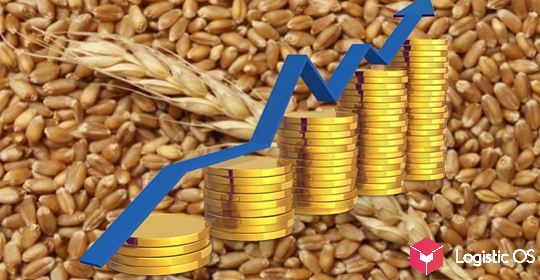According to statistics, in the first half of 2021, grain producers used the services of Russian Railways 15% more often than in the same period last year.
One of the reasons for this phenomenon is the decline in the attractiveness of road transport.
Today, on Russian roads, restrictions are increasingly imposed on the maximum weight of a truck and fines for exceeding it.
Therefore, shippers, including manufacturers of agricultural products, are beginning to think about switching to rail transport.
At the same time, The Central Directorate of Russian Railways for the management of the terminal and warehouse complex is making a lot of efforts to attract even more grain shippers to its services.
Currently, there are 99 terminals on the territory of the country, the services of which can be used by senders of grain, as well as pulses and oilseeds.
Loading and unloading.
Storage (provision of storage space).
Recycling at elevators.
Russian Railways allows customers to install their own elevators for processing products on site at the terminal area they lease, or provides its own.
This allows you to reduce the number of transportations for the purpose of processing, since it can be carried out directly on the route of the cargo. Over the past year, refining volumes increased by 43%, that is, almost 1.5 times.
Another service provided by RZD that is in great demand is container transportation of grain.
A significant part of it eventually goes to the Black Sea ports and is loaded onto ships. Having packed grain into containers at the stage of transportation by rail, it is subsequently possible to avoid its long and expensive transshipment, and immediately load the containers onto sea transport.
What hinders the development of railway grain transportation?
According to Anton Mishin, director of the Ecoline Grain Transportation Department, today there are several factors that hinder this process.
First, , government-imposed duties that do not stimulate exports at all.
Secondly , the congestion of some sections of the routes. For example, there is always a queue to the Black Sea ports.
Container transportation by rail is one of the ways to reduce the unloading time of each wagon and thus eliminate congestion.
Thirdly , some states, and in particular China, which is one of the main importers of Russian agricultural products, periodically impose restrictions on the import of grain.
Although there is also a positive trend: for example, in 5 months of 2021, the export of Russian grain to China through Grodekovo more than doubled.
Currently, Russian Railways is taking an additional set of measures in order to implement the federal project «Export of agricultural products» issued by the Ministry of Agriculture of the Russian Federation.
The most important thing that is planned is to bring the provided traffic volumes in line with the real needs of shippers.
This will significantly speed up and simplify both the transportation of grain within the country and its export.

